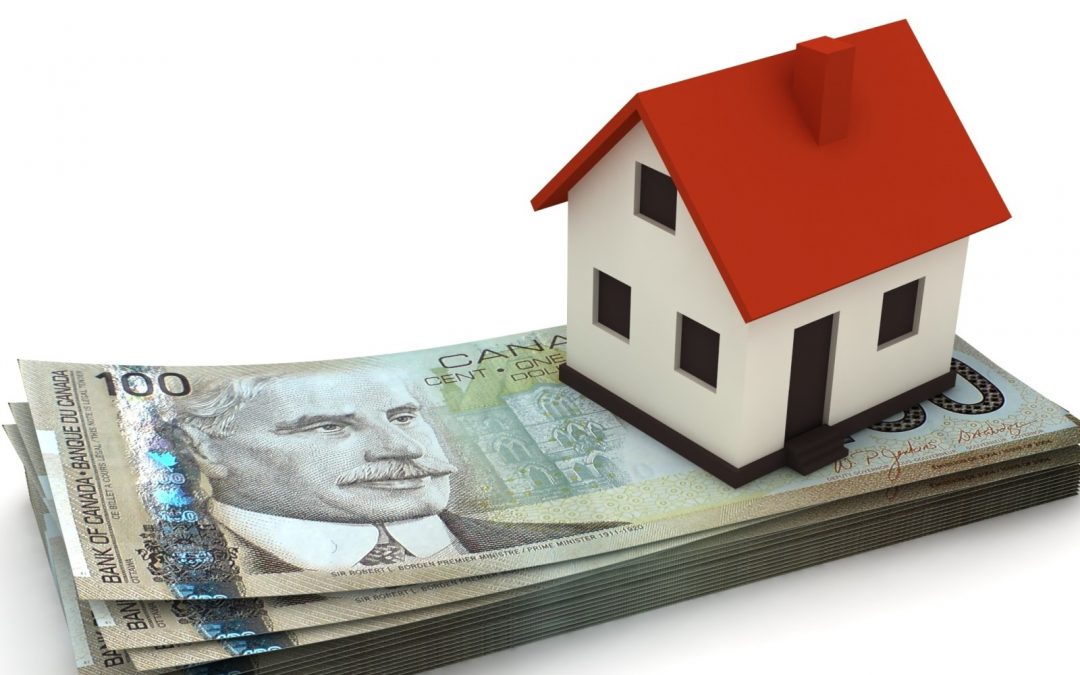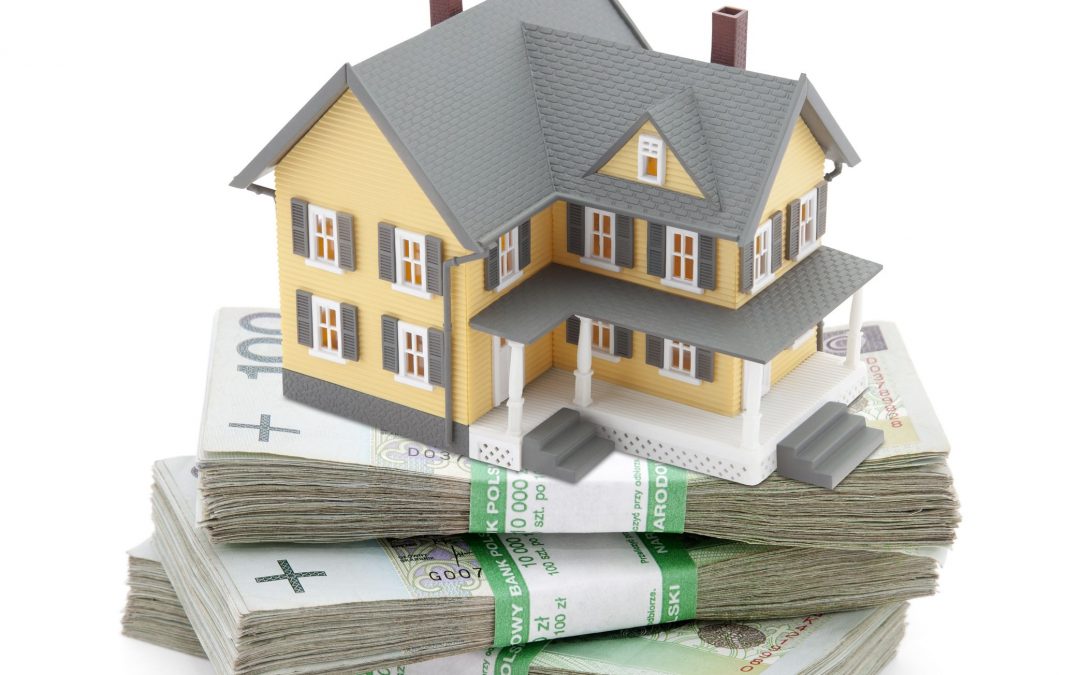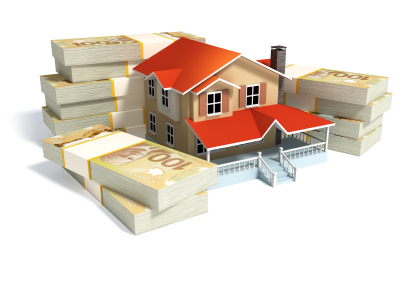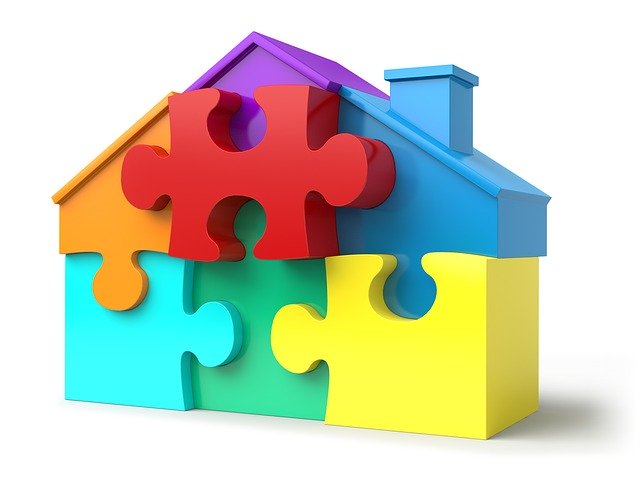
Mar 5, 2020
For the longest time, the majority of people considered private mortgages to be the last resort option, this is no longer the case. Choosing a private mortgage, even if you’re able to get one from an institutional lender, might be the best decision for your future. Private mortgages are for anyone and everyone, especially those who want a personalized experience and easy to understand process.
There are many differences between private lenders and traditional lenders; depending on your situation, one of these differences may be exactly what you need to make the best choice for you. Private lenders are not as strict as banks and large financial institutions because they are often private individuals lending their own money or a small group of investors who make their own restrictions regarding whom to lend money to and more. As private lenders are not obliged to follow the same rules as banks, they are able to make riskier loans and lend to people who can’t qualify for loans with banks under the stricter mortgage regulations.
Some of the advantages of Private Mortgages over bank mortgages are:
Easy to Obtain – When you work with a private money lender, you really only have to provide information that demonstrates that you’ve found a good investment that will pay off. Employment documentation and credit history are not as critical as long as you can prove that you have the financial resources to make the necessary loan payments. Plus, You may receive responses, approval and commitments on the same day.
Flexible Loan Terms – Private mortgage lenders are much more flexible than traditional banks when it comes to loan terms and is able to tailor loans to your specific needs.
Geared Toward Investors – Private money lenders understand that you’re purchasing, refinancing, and/or rehabbing a property based on its after-repair value, not its current value. More often than not, they lend you all of the money you need to achieve your goals with your investment than you would get with a traditional loan.
Get Fund Quickly – The so-called “approval” process is much shorter with private money lenders than it is with banks and mortgage lenders and even some hard money lenders. Given that there is virtually no paperwork to review, private mortgages can be closed quickly. Approval usually takes place within 1 week of application and can be as soon as a couple of days. The processing of the loan and the release of funding takes around 2-3 weeks.
If you’ve landed a deal and have a property under contract, it’s possible to get it funded within days instead of weeks or months.
Open to Challenging Property Types – Private mortgage lenders will often consider properties that many bank lenders would otherwise not finance. These types of properties include:
- Commercial Properties
- Vacant Land
- Rural Properties/Farms
- Construction
- Unconventional properties like churches, gas stations
There are many other reasons someone would choose private mortgage lending over more traditional forms of credit. Maybe you have a poor credit history or no credit history at all. You could also be self-employed or retired. Some people have high-risk properties that can discourage traditional lenders, and others will need a private loan to bridge the gap between what they have and what they need to move into a new home. Or, if you need to take out a second mortgage to pay off bills, a private mortgage may be right for you.
With banks and large financial institutions having more restrictions these days, it can be very difficult for most property owners to secure a mortgage loan; thus, the increasing popularity of borrowing from private mortgage lenders. Although private mortgage lenders charge a higher interest rate than a bank it can’t be denied that borrowing from them is particularly alluring for those with bad credit or don’t have the luxury of time waiting for bank approval. If used correctly, funds from a private mortgage loan can save lives and also save homes in the process. It can buy enough time to allow someone to repair his or her credit score, pay off some debts, or renovate a home so that it can be sold for higher market value and avoid financial ruin.
Whatever your financial situation and as unique as it may be, if you have equity in your property, a private mortgage could be the alternative you have been looking for.
The private mortgages should be only a short term solution, but if it fills the gap and if done right, it could bring long term gains!

Feb 18, 2020
If getting a mortgage has turned out to be a difficult process for you, it may be time to start looking into alternative ways to get approved.
The decision to go with a private mortgage has to make sense. Here are some scenarios when it is a good solution and if one of the cases below fits your current mortgage situation then you should consider working with a private lender:
- You are trying to buy an unconventional or unique property that a bank or another lending institution is not ready to finance
- You are self-employed: you could be a business owner with lots of expense deductions and low reported taxable income. Or maybe you have been self-employed only a short time—fewer than the two years A-lenders prefer to see
- You have a lower than average income or a non-traditional income source and you find it’s affecting your ability to qualify
- You cannot pass the mortgage stress test: inability to meet maximum debt-service ratios
- You need quick financing without having to wait for long approval processes
- You need to access the equity in your home but the penalty to break your current mortgage is too high, and you don’t have enough income to qualify for a HELOC or second mortgage with a financial institution
- You have past credit challenges such as bankruptcy or consumer proposal
- You have a bad credit history or lower credit score and is restricting you from getting a mortgage from a more traditional lender
- You need to consolidate high-interest debt, but due to bad credit, you have been turned down for refinancing or you want to obtain a second or third mortgage to finance a renovation or for another purpose
- A divorce, illness or some other life-changing event has hurt your credit rating. You need mortgage financing until you get back on your feet
- Your existing mortgage is in arrears, power of sale or foreclosure. You need to take out equity from your property to get you back into good standing
- You want to purchase vacant land or a unique property that institutional lenders won’t touch because it’s outside of their lending criteria
- You’ve sold your existing property and bought a new property, but your purchase closes before the sale. You need bridge financing, but your lender doesn’t offer it
- You sold your existing property and bought a new property, but the sale of the existing property fell through. A private mortgage can tide you over until the property is sold again
- You’re interested in buying a “flip” property or a home that is in major disrepair, and you need financing to fund your renovation
- You need a short-term loan for only a few years
- Your income debt ratio is significantly too high
- You require your payments terms to be more lenient

Feb 18, 2020
Lending private mortgage money simply refers to private individuals or groups loaning money to a borrower. The borrower might be looking for a mortgage to purchase a property, wanting to re-finance an existing mortgage, or needing to add a second (or third) mortgage “behind” the first (or second).
Like an institutional or A lender, the private mortgage lender-investor holds the borrower’s property as collateral for the loan and receives payments on the loan. The interest rate, fees, and terms are negotiated between the lender and the borrower, sometimes through an intermediary like a mortgage agent or broker.
Here’s how a typical alternative mortgage offer would work:
- Private mortgages are generally given out for much shorter periods than prime conventional mortgages. Typical terms range from 6 months to 3 years
- Interest rates offered are higher than those of prime conventional mortgages
- 30-year amortizations are normal, and in fact, a couple of private lenders will allow 40 years with a modest rate increase
- Interest-only mortgages – These loans are offered only by private lenders. Borrowers make monthly payments of interest with no payment of principal required until a specified date. Term of Interest only loan is usually 1 year.
- Additional loan processing fees over and above the interest payments can be expected
- Loan processing and funds release usually takes around 2-3 weeks, and approvals can come in as brief periods as a couple of days
- Higher debt service ratios than the A lenders – can go up to 48% or even 50% Total Debt Service Ratio
- Collect your property taxes with your mortgage payment
- Most of them charge a modest renewal fee, and some charge an annual maintenance or administration fee (a few hundred dollars)
Not everyone can qualify for bank mortgages today. With the mortgage rules constantly changing, private or alternative mortgages are becoming the only way some people can refinance or buy.
When you are applying for a traditional mortgage (meaning you are a typical T4 employed client, good credit and significant down payment) the client is qualified based on the person first, then the property.
When you apply for private financing, the property is qualified for the mortgage first and then a few details about the client.

Jan 20, 2020
A Home Equity Line of Credit is an open-ended account similar to a credit card that you can borrow against and repay. The fact that HELOC loans are very similar to credit cards can be considered an advantage or a disadvantage depending on which side of the fence you’re on. If you are a person with spending habits that have proven to be dangerous in the past, you should consider these types of loans dangerous.
A HELOC is a credit line secured by your property, but you only borrow funds as needed.
In this line of credit, you can use and repay as much of the loan as you choose as many times as you like during the draw period. This allows you to only pay interest when you are using the money.
A primary advantage of using a HELOC to pay off debt is to cut the high-interest rates you’re being charged on that other debt. For example, if the average annual interest rate for HELOCs is 5% and if you use funds from that HELOC to pay off a $12,000 credit card balance with 19% annual interest, you’re significantly saving on interest charges.
HELOCs typically come with adjustable, not fixed interest rates, so if interest rates rise, the rate on the HELOC will rise, disrupting your budget. The adjustable rates come with caps on how much the rate may rise over the life of the loan, but these may not provide much protection if they’re high. All home equity lines of credit do have adjustable rates, but they seem to carry a much higher risk than that of a regular adjustable-rate loan. Changes in the mortgage market can affect HELOC rates very quickly. This is one of the disadvantages of HELOC, however, many banks offer an option to convert to a fixed rate.
The second disadvantage of a HELOC is an increase in your housing costs if you’re still paying off a first mortgage, plus the home equity line of credit each month.
If you use up your home equity cushion to consolidate debt, you are putting your home at risk hat definitely makes you vulnerable. If you do not manage to keep up with your monthly payments and you do not manage to reach an agreement with your lender, you will end up losing your home.

Jan 20, 2020
If you’re a homeowner, you can borrow against the equity in your home and consolidate your debt with a Home Equity Loan or Home Equity Line of Credit (HELOC). Equity is the value of your property based on how much you have paid down on your first mortgage. While equity loans often provide lower interest rates than unsecured financing, there are risks and disadvantages that should never be overlooked.
A Home Equity Loan is a closed-ended account that’s repaid over a period of time. It is a second mortgage on your home that takes the form of a lump-sum distribution, so you have to choose the specific amount to borrow upfront. You make equal monthly payments over the full term of the loan until it is repaid.
Interest on home equity loans is usually much lower than on credit card debts. You have a much lengthier repayment period on a home equity loan means your monthly payments could be much smaller.
When compared with HELOCs, home equity loans generally come with higher interest rates because they offer the security of a fixed rate.
However, to secure your home equity loan, your lender puts a lien on your property in the same way your original mortgage lender does. This puts you at an increased risk of property loss if you don’t meet your repayment obligations. A job loss or other bills piling up that cause you to miss first or second mortgage payments can become a serious problem.
Unlike credit lines, an equity loan is repaid in monthly installments, similar to your first mortgage so your monthly debt commitment rises. This means you owe the installment amount each month until your debt is entirely repaid.
While your home is the place you live, it is also property investment. Borrowing an additional amount against your equity reduces the net worth of your property asset. This means that if you ever sell your home, you would walk away with less money because you have to pay off two loans. Plus, paying off additional principal and interest each month prevents you from paying down your first loan more quickly.
And the biggest disadvantage is that it is nearly impossible to discharge a home equity loan. You either pay it or your home goes into the power of sale or foreclosure. Credit card debt is dischargeable. If you have a hard time managing debts, the chance that you might lose your home makes the conversion of consumer debt to property debt very risky.
Unless you have a very solid income and live in an area where home prices are consistently rising, replacing consumer debt with an equity loan is probably not a good idea. You should consider consolidating credit cards or other unsecured debt without using home equity first. To do that, contact SAN Mortgages to develop a proper strategy for your debt consolidation.





